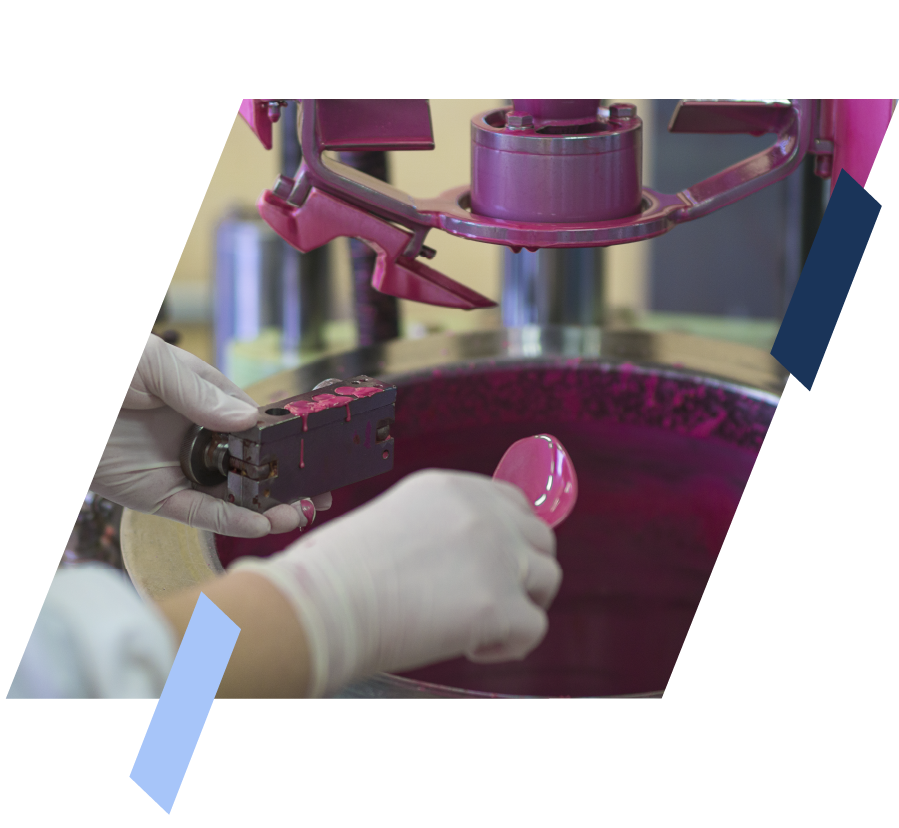Ambimization® vs Cleaning Alternatives
See how we compare to other solvent-free solutions

Ambimization® - The New Industry Best Practice
We know that solvents aren’t the only way to clean manufacturing equipment. However, many alternative solvent-free cleaning solutions fall short—either compromising safety, sustainability, or efficiency.
Here we take a closer look at the limitations of common solvent alternatives like hot caustic baths, high-pressure water cleaning, low VOC solvents, and carbon offsetting. While these options may seem like progress, they come with significant drawbacks: unsafe working conditions, unsustainable waste output, and unaddressed root issues.
We'll also explore why Terrafend’s Ambimization® methodology is the only truly safe, fast, and effective replacement to cleaning solvents and their alternatives.

1. Hot Caustic Bath
Hot caustic baths are extremely energy-hungry, consuming a huge amount of energy during the heating process, while simultaneously creating vast amounts of waste product and water waste. Caustic is also incredibly dangerous to operators due to the fact it is extremely corrosive and used at high temperatures.
Switching out solvents for a replacement that's less efficient, less sustainable and potentially less safe is simply not a workable solution.
2. High-Pressure Water Cleaning
While you might assume water is safer than solvents, high-pressure water cleaning – often requiring pressures of up to 1000 bar – poses a significant risk of severe operator injuries.
What’s more, this type of cleaning consumes large amounts of water, making it an unsustainable option with high waste output, and it often fails to meet the cleaning standards required by most manufacturers.
3. Low VOC Solvent
At first glance, low-solvent formulations might seem like a step towards a safer and more sustainable cleaning solution. But even with a higher flashpoint, they still release VOCs; they still present an unsafe and unpleasant work environment for operators; and they still produce waste, along with the added cost of managing that waste.
Ultimately, low-solvent cleaners possess all of the disadvantages of solvents, only at a slightly reduced level. Switching to them won’t have a tangible impact on your company’s sustainability or make your site safer.
4. Carbon Offsetting
Although not a direct cleaning solvent alternative, some companies are buying carbon credits in an attempt to offset the emissions created by their use of solvents, and signal their company’s willingness to engage in sustainable practices. But carbon offsetting doesn’t deal with the root cause of your negative impact on the planet – and by ignoring it, you’re opening yourself up to reputational damage down the line.
This is due to the risk of double counting, where a carbon credit is counted twice by two separate parties, who both claim responsibility for the reduction in emissions despite it only occurring once. This unaccounted-for carbon remains in the atmosphere, leaving the planet worse off than we realise. Companies that have – whether knowingly or not – inflated their sustainability credentials will find themselves under fire for greenwashing, severely undermining consumers’ trust.
5. Ambimization®: Sustainability Without Sacrifice
Unlike the other solvent alternatives we’ve listed, Ambimization® is a truly sustainable solution, delivering in reductions in CO₂ emissions, VOCs, and waste output.
As a non-toxic, non-flammable, and non-carcinogenic water-based solution, Ambimization® is also safe to handle. It works at ambient temperatures and doesn’t create explosive environments, meaning no complex or costly ATEX zoning is required.
The immediate safety and sustainability benefits of Ambimization® don’t come with any trade-offs in quality. In fact, the Ambimization® methodology is so powerful that it doesn’t just match the cleaning ability of solvents – it surpasses it.
"It made the process safer, it was a more sustainable fluid and it had better reusability"
Gareth Meads, Senior Plant Manager, Scott Bader
Compare Cleaning Solutions: Why Ambimization® Stands Out
This comparison highlights how Ambimization® surpasses traditional alternatives like hot caustic baths, high-pressure water cleaning, and low VOC solvents across key performance features.
| Features | Ambimization® | Hot Caustic Bath | High Pressure Water Cleaning | Low VOC Solvent |
| Solvent free | × | |||
|
Reduced waste |
× | × | × | |
| Quality clean | × | × | ||
| Low energy consumption | × | × | × | |
| Safe to handle | × | × | × | |
| Low VOC emissions | × | × | ||
| Ambient temperature | × | × | ||
|
Non-flammable |
× | |||
| No ATEX zoning required | × | |||
| Supports sustainability | × | × | × |
Transform your Cleaning Operations
Industry leaders like Jotun and Sherwin-Williams are already well on their way to transforming their core cleaning operations, eliminating cleaning solvents and adopting Ambimization®.
Ready to transform your cleaning operations.
Schedule a call today.